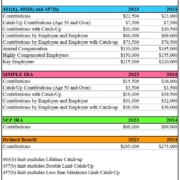Don’t Let Emotions Drive Your Investing Decisions – Independent Press – 07/04/12
The Independent Press
Money Matters – Skloff Financial Group Question of the Month – July 4, 2012
Don’t Let Emotions Drive Your Investing Decisions
By Aaron Skloff, AIF, CFA, MBA
Q: After watching our investment portfolio decline by over 20% in 2008, we shifted our assets into cash and have been sitting on the sidelines. Did our emotions get the best of us?
The Problem – Emotions Drive Financial
Although many investors understand the principal of “buy low, sell high,” most investors “sell low, buy high.”
According to DALBAR, the average stock investor’s average annual total return for the 20 years ending December 31, 2011 was
3.5%. That compares with a 7.8% average annual return for the Standard & Poor’s 500 (S&P 500), which represents 500 leading companies in leading industries of the U.S. economy; capturing 75% coverage of U.S. equities. Over the same period, a hypothetical $100,000 in the S&P 500 would have grown to $449,677 (note: indices are unmanaged and have no expenses).
Unfortunately, many investors use emotion instead of logic to make their investment decisions. As more and more media platforms compete for investors’ attention, they exaggerate the most trivial information into ‘breaking news.’ Investors are hard pressed to decipher useful information from useless information. This leads to emotional decisions – the enemy to successful results from long term investing.
The Solution — Accepting Long Term Investing, Despite Short Term Volatility
Although the S&P 500 returned 116% from 03/09/09 to 03/09/12, it included a number of negative, newsworthy headlines. Some of those headlines included the ending of the Great Recession, U.S. unemployment exceeding 10%, the Gulf of Mexico oil spill, the Japanese tsunami and S&P’s downgrade of U.S. debt.
Accepting short term volatility has traditionally rewarded long term investors. For the 20 year period ending December 31, 2011, we will look at four hypothetical investors that each invest $100,000 into their preferred investment. Investor 1 invests 100% in cash and earns a 3.1% average annual return, leaving $184,802. Investor 2 invests 100% in 180 Day CDs and earns 3.7%, leaving $205,809. Investor 3 invests 60% in global stocks and 40% in global bonds and earns 6.4%, leaving $347,287. Investor 4 invests 60% in U.S. stocks and 40% in U.S. bonds and earns 7.3%, leaving $410,809. It appears as if Investor 4 does not let ‘breaking news’ cloud her investment decisions and derives the most successful results for long term investing.
Factoring in Withdrawals
Since most investors begin making withdrawals from their investments throughout their retirement it is important to look at the same portfolios after factoring in withdrawals. Just remember your income needs are likely to grow at the pace of inflation.
Assuming the same $100,000 investment over the same 20 year period, with a 5% withdrawal of the initial investment for the first year and increasing the withdrawal at 3% each year thereafter (to keep up with inflation), provides some interesting ending results.
Investor 1 would be left with $16,851. Investor 2 would be left with $27,643. Investor 3 would be left with $119,689. Investor 4 would be left with $174,177. Despite accepting more risk, Investors 3 and Investors 4 are left with significantly larger balances.
Action Step — Accept Market Volatility and Reap the Rewards
Although there are few free lunches in the world of investments, investors do not need a free lunch to reap the rewards of long term investing. Since few investors need to withdrawal all of their money at the end of each year, they can accept the volatility from month to month or year to year. Allow logic instead of emotion to determine your investment decisions and reap the rewards of long term investing.
Aaron Skloff, Accredited Investment Fiduciary (AIF), Chartered Financial Analyst (CFA), Master of Business Administration (MBA) is CEO of Skloff Financial Group, a Registered Investment Advisory firm based in Berkeley Heights. He can be contacted at www.skloff.com or 908-464-3060.
Click Here for Your Long Term Care Insurance Quotes












